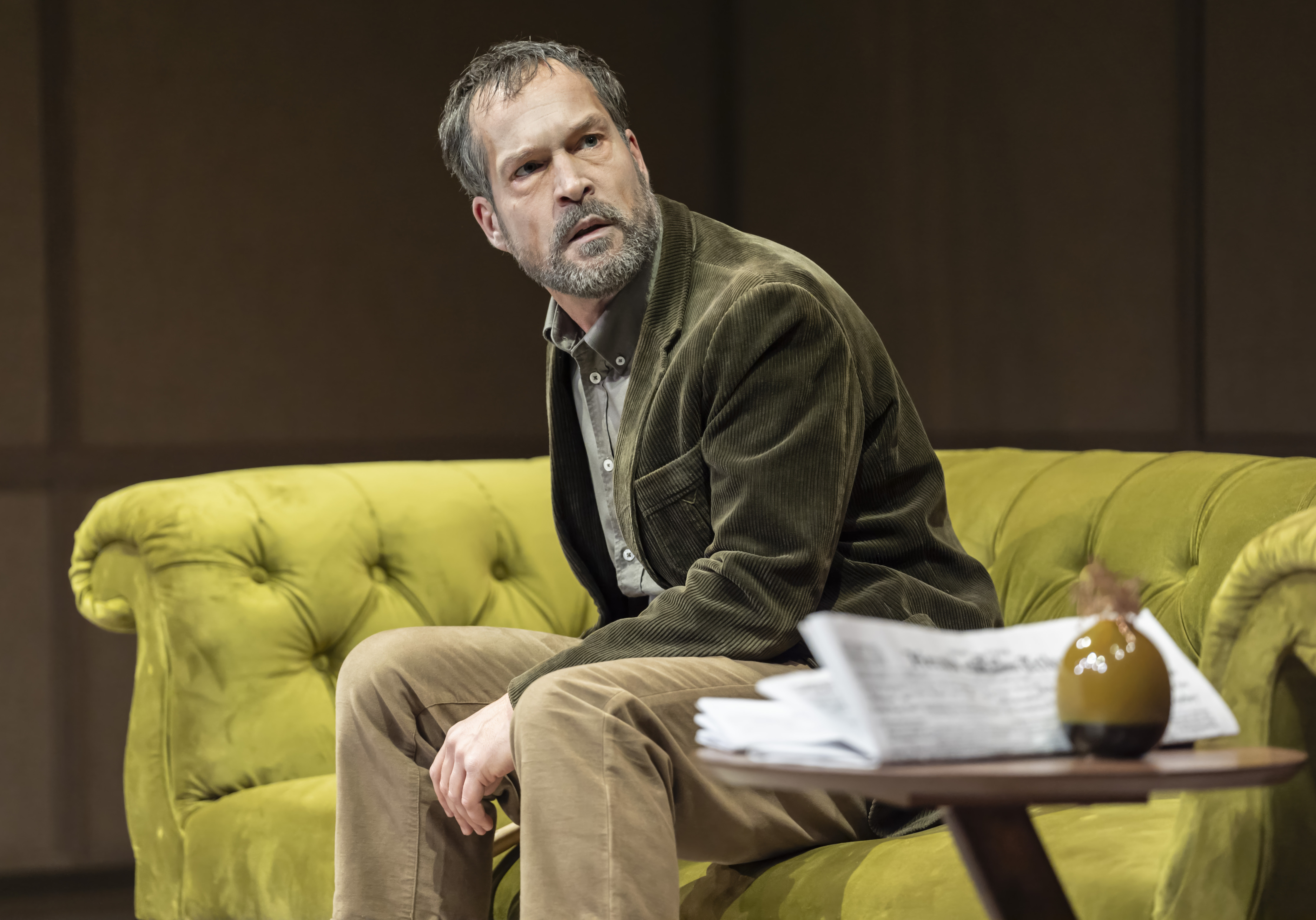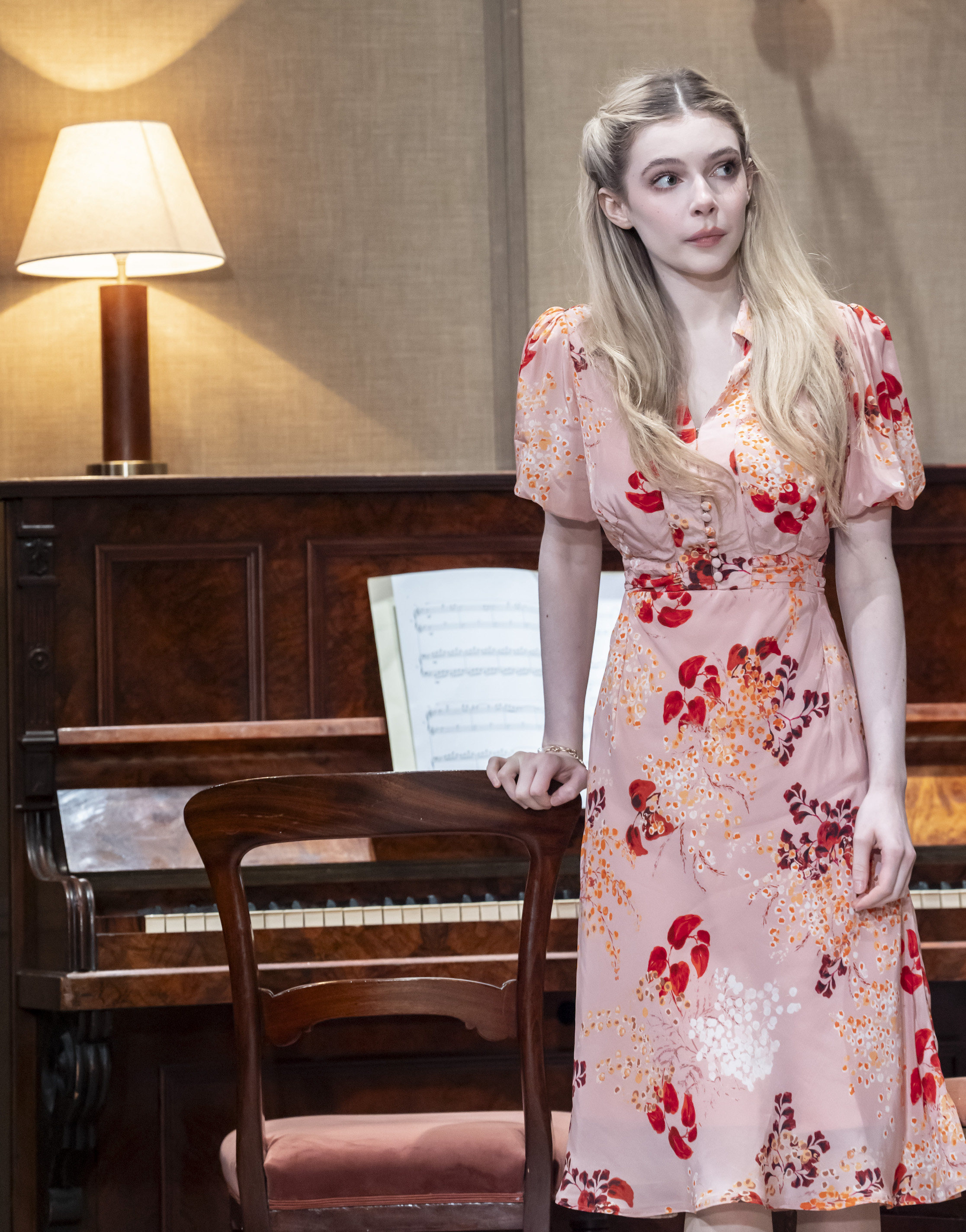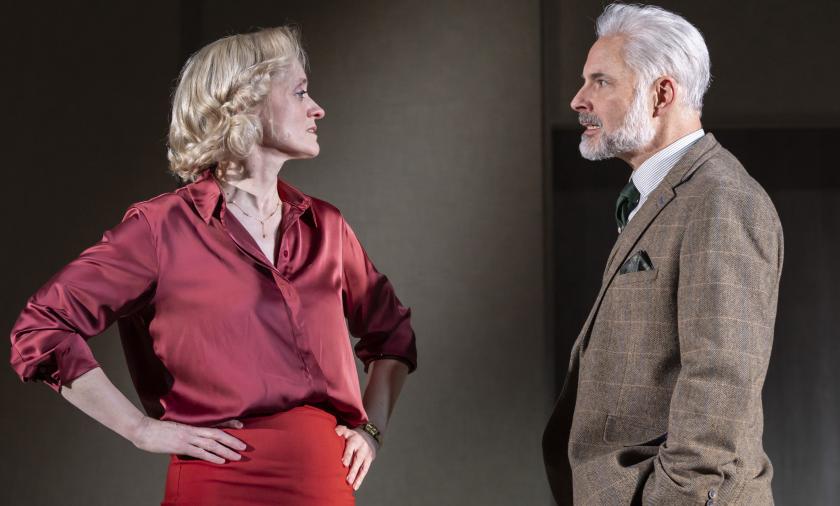The Young Vic has opened under a new artistic director with a puzzle play. The puzzle is, why stage this piece today?
The key themes of Lillian Hellman’s 1939 play look promising on paper: a strong-willed woman battling her brothers for an inheritance, Succession replayed in the deep South. Regina Hubbard Giddens was a plum role for Tallulah Bankhead on stage and Bette Davis in the 1941 film version. And the cinema is where the piece is most at home, a Hollywood melodrama for an actress who can give Regina (the clue is in the name) a regal grandeur, as well as a skilled line in manipulation.
Anne-Marie Duff looks the part, a glamorous blonde in a backless evening gown and other Forties-ish outfits in shades of blood red, but these optics are disorienting. True, she is supposed to present herself as an exotic figure, but here she is placed in what looks like a rather suburban American home with some post-war furniture, where nothing grand is on display. Her husband isn't that hard up, surely? The beige of the decor also disguises her origins as part of a successful family. If you didn’t know this was the South, you would have no clue from the decor and costumes, just the Black help (Freddie MacBruce and Andrea Davy).
The disconnects continue. Regina’s unhappy sister-in-law, Bridie (Anna Madeley) is in a long matronly floral number, more 1960s than 1940s, a gesture to the genteel rural past of her youth on the family plantation. This has been bought by her mean-spirited, grey-suited husband Oscar Hubbard (Steffan Rhodri), who could be a modern-day accountant, and his brother Ben Hubbard (Mark Bonnar), a self-important blowhard in a tweed three-piece, familiar from the 19th in all golf-playing nations. Again, are these really Southern gents? Where are we, and when?
 Confusing the picture even more is the family’s visitor, William Marshall (John Light), every inch a 21st century urbanite dressed entirely in black and sporting transparent-framed glasses à la David Mamet. He is purportedly a Chicago money-man but looks like he wandered in from a production of Art. Ben has made a deal with him to part-finance a new cotton mill, but Regina’s husband Horace (also played by Light, pictured left), away at classy Johns Hopkins hospital with a serious illness, is stalling on signing up for it. Enter Regina armed with feminine wiles, dreaming of future millions to come.
Confusing the picture even more is the family’s visitor, William Marshall (John Light), every inch a 21st century urbanite dressed entirely in black and sporting transparent-framed glasses à la David Mamet. He is purportedly a Chicago money-man but looks like he wandered in from a production of Art. Ben has made a deal with him to part-finance a new cotton mill, but Regina’s husband Horace (also played by Light, pictured left), away at classy Johns Hopkins hospital with a serious illness, is stalling on signing up for it. Enter Regina armed with feminine wiles, dreaming of future millions to come.
Out of this jarring collection of personalities Hellman created a typical 1940s women’s-picture scenario, where a spirited woman, starved of what her brothers received from their father’s will, fights back – but naturally must be punished for it by an extreme form of isolation where everybody in her family, including her 17-year-old daughter Alexandra (an oddly ashen-faced, strident Eleanor Worthington Cox, pictured below), hates her. But no amount of updating can put true contemporary flesh on its bones.
It’s not just the inevitable absence of telephones and modern gadgetry that blurs the production’s focus, or the textual references to horse-drawn carriages and taking trains for long-distance journeys, or the presence of Black servants in front of whom the N-word is openly used by their employers. Its concerns are not exactly today’s concerns. A woman like Regina may be a toothsome role, but she is the product of specific cultural conditions, ones the world has mostly moved on from. We could usefully look at her through a historically accurate lens, as the original play and film did, but that’s not what Lyndsey Turner’s production has done, Giving her a contemporary makeover can only make superficial changes.
The excellent cast do their best to overcome these inherent drawbacks. Madeley’s Birdie is a sad, twittering mess with a dark secret, somebody Tennessee Williams might have recognised. She is also the only one with a direct connection to the old South, a local aristocrat who knew how to treat her “people” (ie slaves). Light shows his usual versatility, a smoothie as money-man Marshall in the first scene, a man of principle and grit when he returns as the dying Horace. And Bonnar is especially successful at making Ben a bloviating creep, his lilting southern tones perfectly modulated to give him maximum sliminess, his anger eruptive and powerful.
 Duff injects Regina with all the sass and sparkiness she can, but she is not a scenery-chewer; she's a more sympathetic character actress than the grandes dames of Hollywood in their prime. She succeeds in making Regina unlikeable, but not a character we feel extreme emotions about, neither love nor hate. Her desire for life in all its variety and excitement may be familiar, but modern women don’t wait around to go in search of those things. Is this Regina supposed to be “modern”? It’s hard to tell from looking at her (see above).
Duff injects Regina with all the sass and sparkiness she can, but she is not a scenery-chewer; she's a more sympathetic character actress than the grandes dames of Hollywood in their prime. She succeeds in making Regina unlikeable, but not a character we feel extreme emotions about, neither love nor hate. Her desire for life in all its variety and excitement may be familiar, but modern women don’t wait around to go in search of those things. Is this Regina supposed to be “modern”? It’s hard to tell from looking at her (see above).
The one theme that does still resonate is the one Alexandra adopts as she plots her escape to a future with music and European culture in it: not to be the kind of person who stands around and watches as injustices are inflicted. But Turner’s production doesn’t really present us with a play focusing on American racism or the iniquities of the South. These issues are in the text but not at this staging’s core. Ditto feminism. What we are left with is a patchwork: a plot about family finances and double-crosses yoked to a melodrama – emphasised by the ominous rumbling sounds that accompany the climax. As a tragedy of failed dreams, though, it doesn't engage.















Add comment